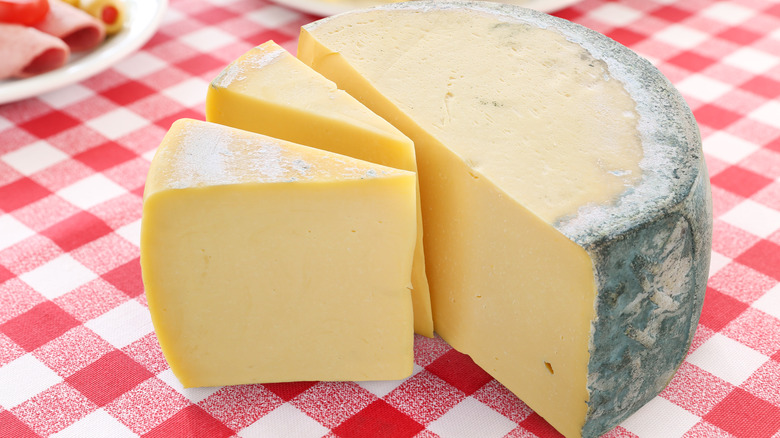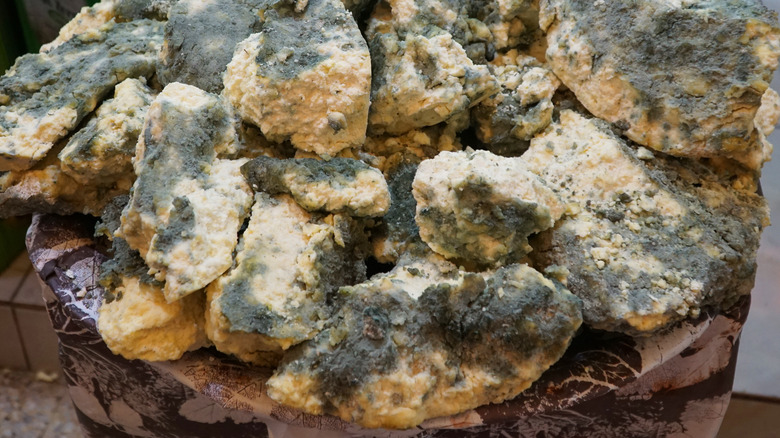Is Moldy Cheese Dangerous To Eat?
Mold and cheese is quite a conundrum. Some cheese gets better with age and, with age, sometimes comes with mold (via Insider). After all, the funky fungi is what gives blue cheese its trademark tang. So one may assume that moldy cheese should be edible.
Not so fast. Aged cheese actually does not mean moldy cheese. Lively Run Dairy explains that adding salt during the cheesemaking process cures and preserves it so that aged cheeses shouldn't get moldy. However, Can It Go Bad reminds us that all cheese is made from dairy and that dairy can inevitably spoil.
Mold Inspectors of Florida shares that water, oxygen, and nutrition are building blocks for mold growth. Softer cheeses like brie have a high water content, which means that they will mold faster than cheese with very low water content like cheddar (via Home & Family). However, even that dry, aged chunk of parmesan that's been sitting in your fridge for eons could grow some spores.
Can you eat moldy cheese?
Whether you can eat moldy cheese depends on the fromage. Mold gives some cheeses their distinctive flavors and textures. Healthline explains that in the case of blues, like gorgonzola, mold is injected into the curds, which creates the blue veins that spread through the cheese. For soft-ripened cheeses like camembert, mold is mixed into the milk while the cheese is being processed. President Cheese says that the rind on brie cheese is actually a white, edible mold that protects the creamy interior from bacteria.
Of course, the water content in cheese can lead to bad mold. The Reluctant Gourmet doesn't mess around with moldy soft cheese, opting to toss it immediately. Hard cheese, however, is a different story. He recommends cutting more than an inch around the mold, making sure the knife doesn't get contaminated.
ABC News Australia concurs, explaining that hard cheese's low water content keeps the contamination to the surface. However, the report points out that on other food items, particularly ones that are soft, spores can borough into places not visible to the eye. The news outlet also says that molds that grow on food with low acid content (like dairy) pose the greatest risk for harmful bacteria. Given that Healthline warns that the bacteria in mold can cause a riot of health problems, from food poisoning to cancer, it's important to remember the old adage: when in doubt, throw it out.

